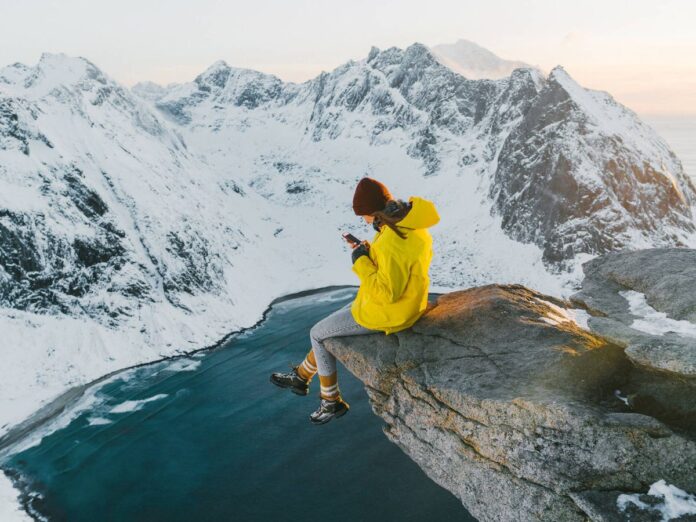The Latins we have a complex relationship with the Nordics, well, on the one hand, we admire (perhaps too much) certain things about his idiosyncrasy and his politics, and, on the other hand, we consider that there is nothing to envy about his way of life, since, quoting a little Raffaella Carrà, to live well (making love is included in the equation) you have to come to the south.
But stereotypes aside, which are usually pernicious and do not give a very reliable portrait of village, there are some characteristics of the Nordics that we could implement in our day to day, just like the rest of Europe looks at our beaches, naps and gastronomy (in other words, our ‘savoir faire’) with envy. And one one of them is the Norwegian concept of ‘Friluftsliv’.
It refers to activities as different as jogging in the forest, cycling to work, relaxing on the weekend by going to the mountains or going with friends to a sauna on a lake
The Friluftsliv is the love of nature, and in fact the expression means (literally) “outdoor life”, and was popularized in 1850 by Henrik Ibsen, author of ‘Doll’s House’, which described the importance of spending time in remote places for one’s own physical and spiritual well-being. That is, instead of that distant idea that sometimes haunts our head of leaving everything forever and fleeing to a distant place, we can precisely flee for a certain time so as not to leave everything, returning with the batteries charged.
:format(jpg)/f.elconfidencial.com%2Foriginal%2Fd80%2F648%2Fa28%2Fd80648a28766d68eb47c7b5837e61fd5.jpg)
Nowadays, Frilutsliv is natural not only in Norway, but also the have incorporated the Swedish and Danish neighbors. The expression has evolved a little, and refers to activities as different as running in the forest, cycling to work, relaxing on the weekend by going to the mountains or going with friends to a sauna on a lake. Nine out of ten Norwegians have ever done it, and according to official data it is the preferred leisure activity (above all other sports).
The concept is also closely related to the ‘right to wander’ or ‘allemansräten’. Unlike in other countries, Scandinavians do have laws that allow them to camp or hike anywhere as long as they show respect for the specific habitat. The trick is that, after all, the activities are free and are not really based on anything concrete, but are designed precisely for leisure and to escape from the mundane noise in pursuit of the bucolic. Hiking, contemplating a fjord, walking through a forest. Those little things.
He thinks that exercise helps to lose weight and releases endorphins, that contact with the outdoors and the sun contributes to a greater supply of vitamin D, and that it favors the reduction of anxiety
You will think that its nature is conducive to carrying out such activities, but we must not forget that on many occasions time does not accompany precisely. And, paradoxically, to the citizens of those countries who according to the stereotype should spend most of their time locked up at home due to climatic conditions, they don’t seem to care. It is also true that many Nordic companies support their employees and encourage them to come to work on foot or by bicycle, in addition to offering compatible schedules with which to carry out these activities.
The Latins we have a complex relationship with the Nordics, well, on the one hand, we admire (perhaps too much) certain things about his idiosyncrasy and his politics, and, on the other hand, we consider that there is nothing to envy about his way of life, since, quoting a little Raffaella Carrà, to live well (making love is included in the equation) you have to come to the south.
Hits: 0











